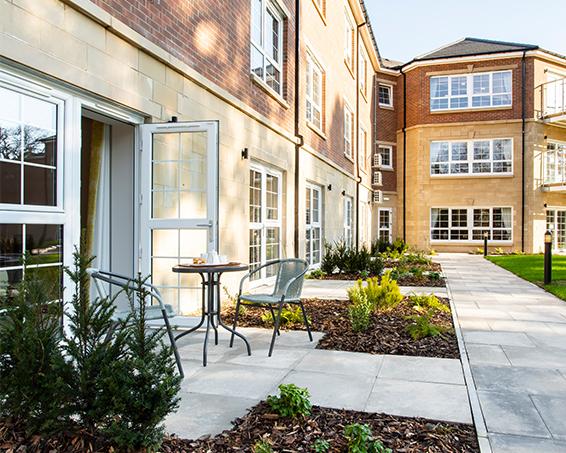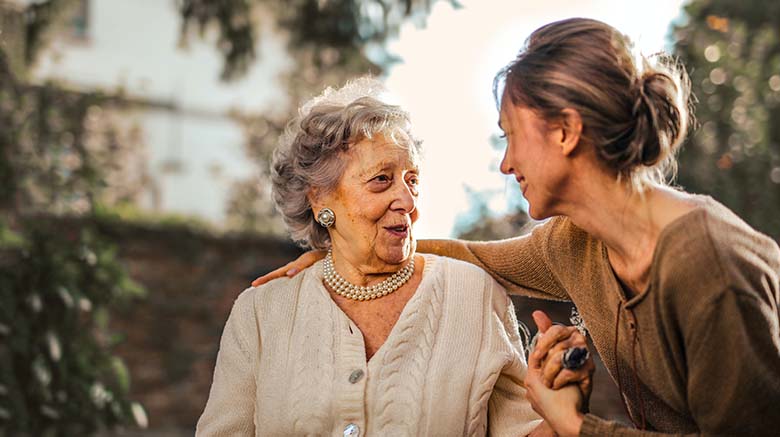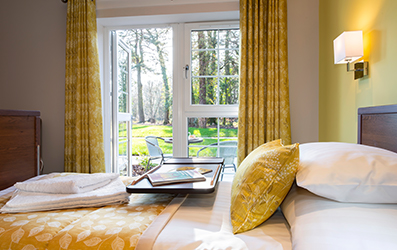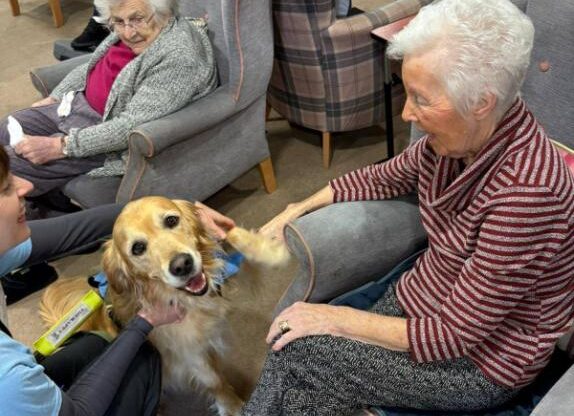How to Move an Elderly Person Into a Care Home

As we get older, it is common for people to require additional help and assistance with their daily lives including personal care. Some people receive care and support from their family members at home. However, living in your own home may not suit everyone depending on the level of care required. For instance, if an elderly relative needs progress or their care is highly advanced it may become too much for loved ones to do alone which could result in a decline in overall health and well-being.
A move into a care home may be the best option for an older individual as they can receive the high-quality care and support they require on a daily basis. We understand that transitioning into a nursing home or care home can be a stressful time for not only the older individual that needs care but also their loved ones. Below are some factors you should consider to help the transition into a care home as stress-free as possible.
Have a Conversation With Your Loved One
To reduce any anxiety or uncertainty as much as possible, it is important to get your loved one involved in the decision-making process as much as possible. This will allow an individual to feel like they are taking control of what could be considered a significant change in their life. Once your loved one feels a little more comfortable with the thought of moving into a care home, book some appointments to visit some local care homes so they can get a feel of their potential new surroundings where you can both get a first-hand look into how a care home works.

This also gives someone the opportunity to ask questions about their concerns if they have the mental capacity to do so. If your family member has a neurodegenerative condition such as dementia, it is highly recommended to acquire lasting power of attorney so that you can make decisions on their behalf, such as moving them into a care home if you believe it will benefit them.
Talk About The Benefits
Moving into a care home is often considered as something negative or a 'last resort' where a relative should be made to feel guilty when it really shouldn't be. A lot of elderly people are worried that they will no longer be able to live independently or continue with their daily interests, so it is important to explain to your loved one that it will be beneficial in many ways. Benefits include having a professional care team on-site 24-hours a day, being in a safe environment, having a social life with other residents and being free of household chores. Talking about a move into a residential care home or nursing home as soon as possible will give your relative time to mentally prepare for the move and when it becomes the right time, they will be used to the idea so they should feel more comfortable which can make all the difference.
Research Local Care Homes

It is important to search for a care home that not only meets the individual's needs but also provides a suitable environment and has facilities that your loved one would be interested in. Once you have decided on a desired location, you should choose a selection of homes that you'd like to visit. Each care home's level of care and facilities will be different, so it is important to find a care home that provides the correct care type for your loved one. You can also look at the care home's latest inspection report online which will give you a better understanding of what the home is like from a professional body point of view and the grades it's been given. When visiting a residential home, you should consider asking all the questions you have such as what kind of food is offered, what activities they provide, and examples of the day trips they go on.
Understand Your Loved One's Care Needs
It is important that you understand what type of care an individual needs and this can be done by having a care needs assessment which is usually carried out by a social worker or care home manager. Certain things you should consider are a person's mobility, their personal care needs, their mental capacity and any underlying health conditions to establish the most suitable care type for your loved one. To help decipher this you should speak to your local authority who can carry out a care needs assessment. That way when you get in touch with a care home manager, you should have more of an idea of what type of care your loved one requires, whether it's residential care, nursing care or dementia care. Each care type can offer respite stays.
Consider Care Home Fees
It is a known fact that care homes and nursing homes can be costly, so it is important to consider the costs you can work out how the care will be paid for. If a person is unable to pay for the care themselves as they don't have adequate funds, (known as self-funding), individuals may be eligible for funding from the local council following a financial assessment. If the individual has complex healthcare needs, they may be eligible for NHS Continuing Healthcare Funding which is not means tested. An individual's care home fees can also be paid for by a combination of sources, such as local authority funding and self-funding. It is important to note that fees will likely increase on an annual basis due to the rise in the cost of living. You'll need to discuss the payment structure with the care home beforehand.
Seek Advice From Healthcare Professionals
If you are feeling unsure or confused about whether a care home move is the right decision for your family member, there are many resources you can use for added peace of mind such as contacting your local council, care home management or looking at information online such as Age UK or Carehome.co.uk.
Many sources can offer emotional support and practical advice for managing the transition into a care home, which can be a challenging and emotional experience for both you and your loved one. They can also provide information on local resources and support services such as relatives meetings that may be available to a family during this time.
Providing Outstanding Care at Bothwell Castle Care Home
Bothwell Castle Care Home in Uddingston provides 24/7 Residential Care, Dementia Care, Nursing Care and Respite Care care options for older people. Positioned in the quaint town of Uddingston in South Lanarkshire, Bothwell Castle offers a luxury lifestyle with an array of on-site facilities as we encourage residents to pursue their passions. The skilled and friendly team at Bothwell Castle provides a high standard of person-centered care that strives to look after the individual needs of each resident. We continually assess a resident's health and well-being needs to ensure seamless continuity of care.

Bothwell Castle Care Home offers a wide variety of facilities for residents to enjoy home comforts including a hair salon, private gardens, cinema room, a varied activities programme to keep each day fresh and exciting with as much choice as possible. Our Activities Team gets to know residents on a personal level in order to provide activities that cater to residents' hobbies and interests. We want nothing more than for residents to continue doing the things they love for as long as possible and we support them in their endeavours.
Chat With Our Helpful Staff
Knowing when it's the right time to move a relative or loved one into a care home can be an overwhelming time. The team at Bothwell Castle is available to provide quality support and will happily answer any questions you may have. To get in touch with our team today, please call 01698 622 299 or email info@bothwellcastle.com and a staff member will gladly assist you.





